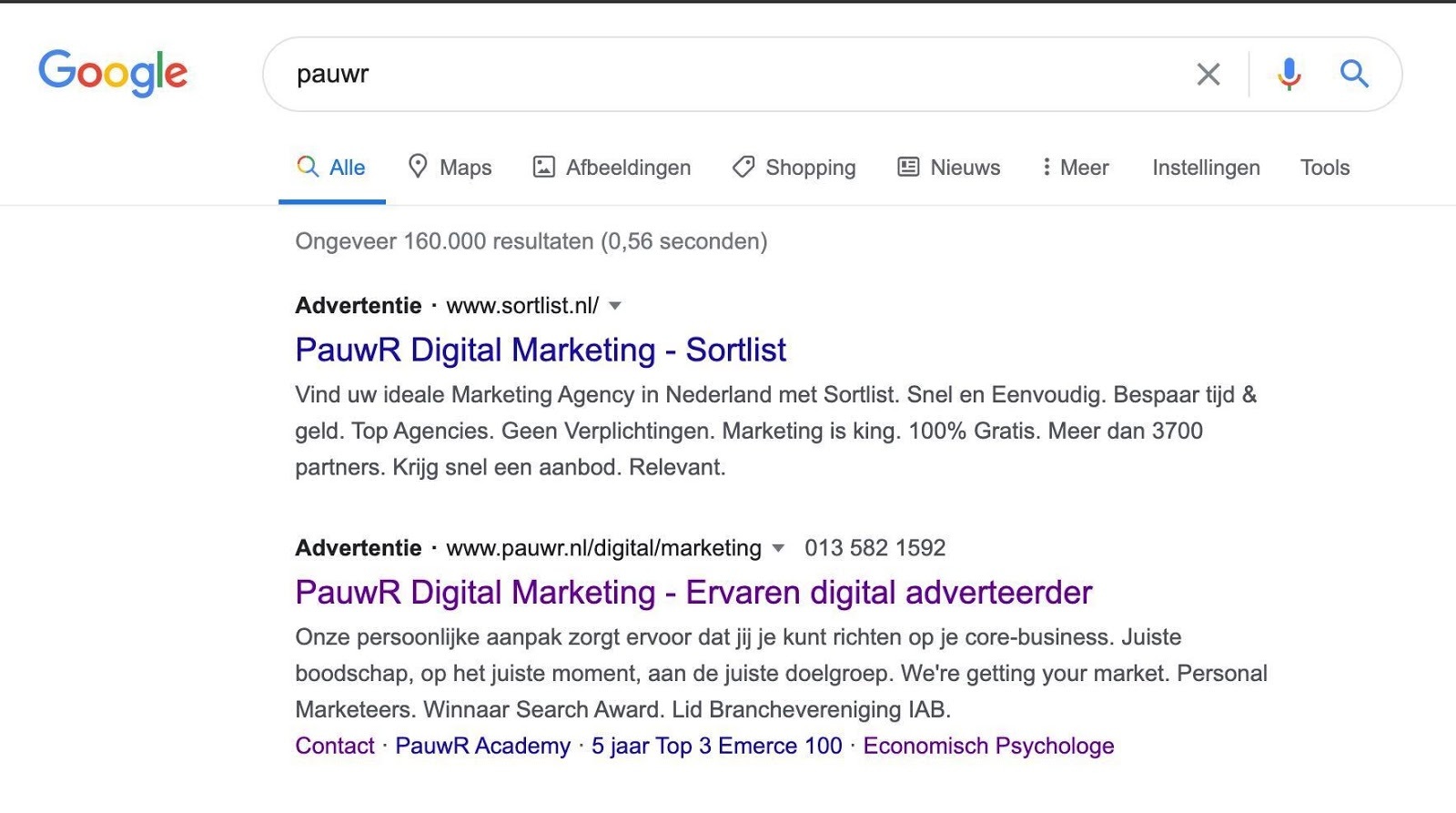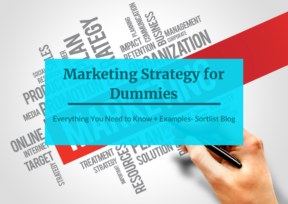
Dynamic Search Ads: What Are They and How Do We Use Them?
Within Google Ads, Google provides access to Dynamic Search Ads (DSA) which is an option to have google automatically generate search engine ads based on the content of the advertisers website. The advertiser provides a target based on the desired landing pages or the type of audience they want to attract.
The ads are made of a dynamically generated headline, display URL and keyword targeting combined with a curated set of ad descriptions provided by the advertiser.
The DSA are quick and easy to set up, and can provide access to a wider audience compared to ads created by the advertiser. However, it does require guidance and careful management to use it optimally and show the right content.
Sortlist uses DSA as part of their SEA campaigns in order to capture new or niche audiences that would otherwise fall through the net. The DSA is regularly checked and guided towards the right direction in a continuous effort to make sure the campaign doesn’t target agency brand names, or irrelevant traffic.
Google Ads?…Refresh my memory
Google ads is the platform where companies can place and manage their advertising efforts across all of Google’s services. Including Search Engine, Display, Video, Shopping, and App ads.
The most important type of advert or campaign to understand for this article is search engine ads, which are displayed according to the search terms entered by the user. The standard variation of these search engine ads is the “text ad”.

These ads consist of 1 to 3 sections that combine into the headline, 1 or 2 sections that combine into the description, a Display URL which is a streamlined version of the landing page URL, and a Final URL which is the actual URL of the page where you want to lead the user.

In order to determine when to show the ad Google requires the advertiser to provide a list of keywords that are connected to their business and the ad itself in order to find the right audience.
Then you have responsive text ads, which is an expansion on the text ad and a step between normal text ads and DSA ads. The responsive ad allows the advertiser to include multiple variations of the headline and description, which are then mixed and matched by Google in order to best fit with the search term used.
OK…. So What’s a Dynamic Search Ad?
The last type of search engine ad is the Dynamic Search Ad. Dynamic Search Ads or DSA for short is Google’s system to help advertisers find a wider audience. In contrast to text or responsive search ads which are created by the advertiser, Dynamic ads are automatically generated based on the content of your website.
For these ads the keywords that result in the ad being shown, the headline of the ad, as well as the URL/webpage that are shown are generated by Google’s algorithm. The description in the ad is picked and combined from a selection of pre-written ad descriptions provided by the advertiser.
The automatic creation of the ads is performed by Google’s machine learning algorithm. Google first checks the content of your website based on the URL the advertiser provides.
The algorithm then tries to match the content of the advertisers web pages with the needs of the audience, similar to conventional search ads, only here Google has more control over what to display for the audience.
The way the advertiser can activate and manage these dynamic ads is with targeting. There are various options available with regards to targeting. URL targeting, page title targeting, and page content targeting are useful for guiding a larger audience towards specific pages determined by the advertiser.
Category targeting works slightly differently than the targeting methods mentioned above in that it does not have a specific webpage as the target. Instead it uses common subjects as categories connected to the content on your website, which targets all pages containing content related to that category.
Why Use a Dynamic Search Ad?
With the explanation out of the way, why would you want to use DSA? Well, there are multiple benefits to using DSA. First off, they are easy to set up due to the fact that you don’t have to write all the ads for the web pages and ad groups. You can write a handful of great ad texts, and Google will handle the headline and display URL.
Additionally, due to the dynamic nature of the ads Google can select landing pages and headlines based on the search query making it more specifically tailored for the users needs. This can result in better performance compared to traditional search ads.
Elements that make the DSA useful and unique, can also be its downfall.
Due to the fact that the advertiser lacks control there is a possibility that the campaign doesn’t reach the right audiences, additionally, the algorithmic generation of the ads means they can’t all be winners and sometimes the algorithm generates a confusing or low-quality ad.
Sortlist’s employment of DSA
At Sortlist, DSA’s are used to fill in the gaps between the various marketing campaigns. The DSA allows Sortlist to find new keyword trends and combinations which can then be added to their respective campaigns.
Additionally, the flexibility allows it to bridge the gaps for niche search terms that would be difficult to maintain manually, which would be very time-consuming and make the account cluttered and slightly confusing.
In order to make optimal use of the DSA the performance is regularly checked and analysed. As mentioned in the previous paragraph, promising search terms will be added to the manual campaigns as new keywords.
Irrelevant search terms will be added as negative keywords to the DSA in order to exclude the ads from showing on those search terms in the future.
While it isn’t Sortlist’s intention, due to the automatic generation of ads/keyword targeting combined with the information pages of our partner agencies on the Sortlist website the DSA ads sometimes still target the brand names of our partner agencies.
Measures are in place to minimize the chances of this happening, and the DSA campaign is regularly reviewed to implement extra measures so the DSA won’t target those keywords in future.

In case you notice one of these ads on your brand terms, please get in touch with us so we can give the DSA a slap on the wrist and do everything within our power to ensure it won’t happen again.





